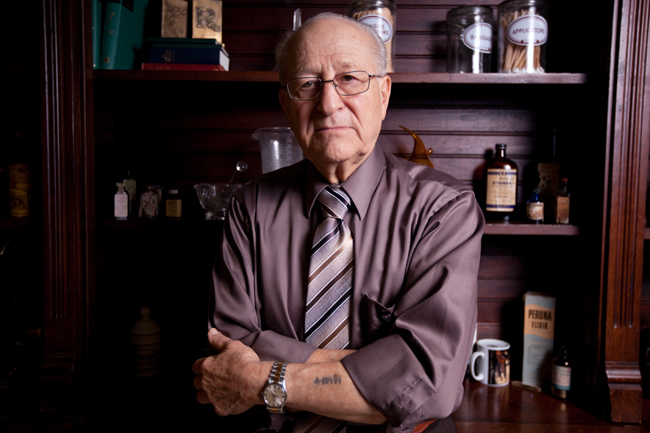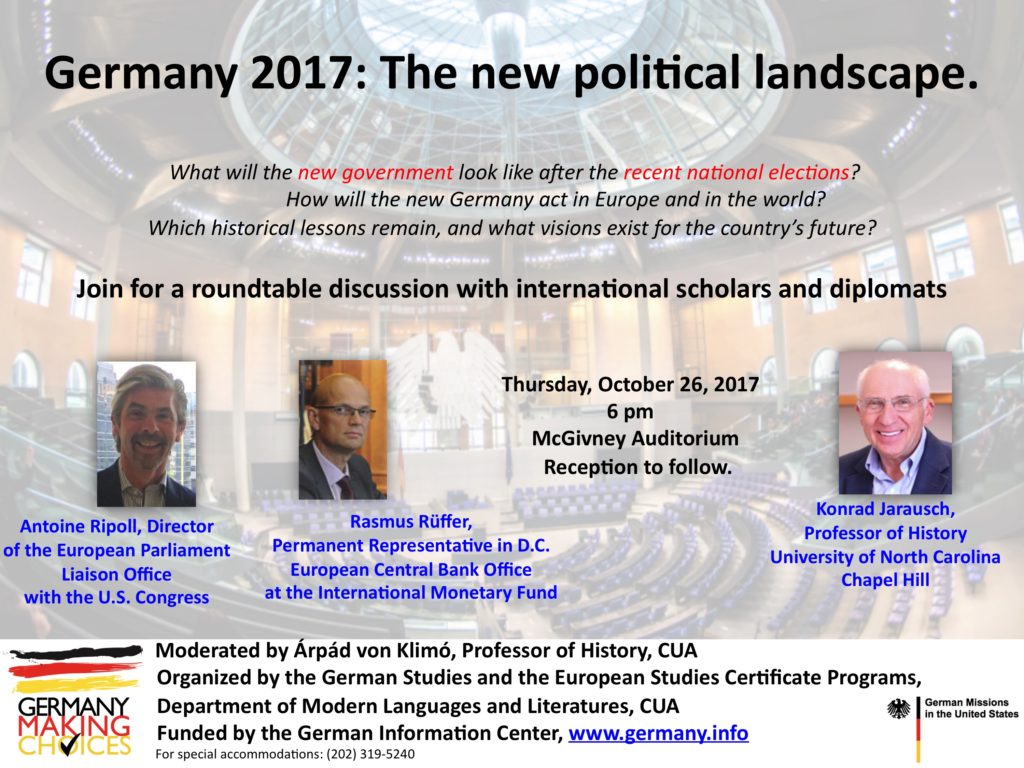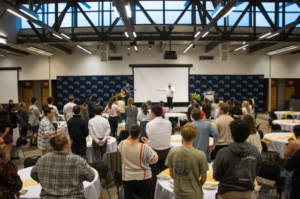Holocaust Survivor Shares Experiences, Advocates for Communication

By Duane Paul Murphy
A Holocaust survivor visited Catholic to speak on campus this past Tuesday, October 10th at the Keane Auditorium in McGivney Hall to discuss his own personal experiences and how he survived the Auschwitz concentration camp, and advocate for more peaceful dialogue involving the current era’s global conflict. Irving Roth, 88, described the Nazi occupation of Czechoslovakia and the Auschwitz concentration camp in Poland.
Roth spoke to an audience of more than fifty people, mostly undergraduate students, about his life before, during, and after the Holocaust, in which more than 6 million European Jews died under Nazi German rule. The event was organized by Cardinals for Israeli and Middle Eastern Culture as well as Samuel Lourie, a campaign field organizer from Christians United For Israel on Campus. Roth has spoken at a wide variety of locations including Yad Vashem, Israel’s official memorial for holocaust victims in Western Jerusalem. Roth is also a recipient of the 2004 Ina and Jack Polack Citizen Award from the Anne Frank Center for Mutual Respect in New York City.
Roth began his talk by describing his early life and childhood before the rise of fascism in Europe during the early 20th century. Born in 1929, in the Slovakian city of Košice, Roth’s father worked and owned a lumber business that made railroad ties, and Roth was a member of a well off family, in a town of about 7,000 people. A third of the town’s population at the time was Jewish and the rest were Gypsy, Catholic, Protestant, or Russian Orthodox. Roth lived peacefully and tranquilly outside of school with his family, friends, and neighbors. However, he did acknowledge political changes outside his country with the rise of Nazi Germany and their new laws that started to discriminate Jews in employment, public spaces, and other areas. While in grade school, Roth had a crush on a Russian Orthodox girl, who was later told by her father that she wasn’t allowed to socialize with Roth anymore.
Roth further went on to explain the discrimination he faced in Nazi-occupied Czechoslovakia. He was not allowed to go to public school or local parks during his teenage years. He also explained the historical context of the Nazis’ plans to exterminate Jews throughout Europe.
By the age of 14, Roth and his family were sent to Auschwitz where he was a prisoner for almost two years. He described the lack of nutrition and work assignments. Roth was tasked with working with horses to plow the fields near a swamp. His diet in the camp consisted of black coffee in the morning, some soup in the afternoon, and the equivalent of four slices of bread at night. Roth also said that while the Allies fought against the Axis Powers in Europe, their governments were aware of the genocide or the camps, yet did not do anything to prevent the atrocities due to anti-semitism abroad.
In 1945, World War II came to an end in Europe and the concentration camp was liberated by the Allied Forces. Roth describe how the Nazi soldiers cut off power from the camp, locked up the gates, and abandoned the area all together as they fled from the Allied Forces.
Roth described the arrival of two American soldiers entering the barracks of the area on the day of his liberation.
“My friends, the Messiah has arrived,” Roth said. “So next time if you want to know what the Messiah looks like, there’s two.”
In 1947, after World War II, Roth and his parents moved from Hungary to the United States. Roth would later study to become an engineer. Roth talked about how peaceful dialogue is necessary to end violence and conflict in the current world, mentioning the Korean Peninsula and the Middle East as primary examples.
University students present at the meeting expressed overall positive feedback for the speaker.
“He is man of great spirit, little anger, and I hope more people listen to him,” said freshman Timothy Buonocore.
Other students expressed positive sentiments regarding how personal accounts were further highlighted as well as incorporated along with the overall historical context.
“He talked about both the universal and the particular,” said freshman student Matt Bechtel. “He talked about the war in general, to make sure we knew about that, before he went on to his own stories, which I thought it was helpful.”
When asked about the event, senior Kevin Ross delivered his takeaway of Roth’s main idea.
“The message I got was to keep moving on and be wary of hate. Do what’s right,” Ross said.
Alex Santana contributed to the reporting of this story.







